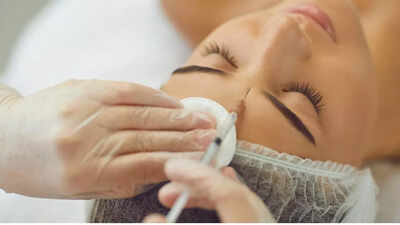Behind the Glow: Understanding Botox, Glutathione, and Anti-Ageing Treatments

Everyone wants to look and feel young. The beauty industry constantly finds new ways to help people achieve this. Anti-ageing treatments are one such way. They include popular options like Botox and Glutathione. These aim to slow down ageing and treat age-related issues.
What Are Anti-Ageing Treatments?
Anti-ageing treatments are a new field in medicine. They target the root causes of ageing. The goal is to slow down the ageing process and reduce age-related diseases. However, experts warn that many products are still in clinical trials. There is often little evidence of their effectiveness.
Anti-ageing treatments come in various forms:
- Pills
- Injections
- Drips
These treatments claim to slow ageing, brighten skin, and boost energy.
What Are Botox Injections?
Botox is a well-known brand of botulinum toxin injections. It works by weakening muscles through affecting nerve signals. Botox is used for both cosmetic and medical purposes.
Cosmetic uses of Botox include:
- Smoothing wrinkles on the forehead
- Reducing crow’s feet around the eyes
- Softening lines around the lips and chin
- Improving the appearance of the jawline and neck
Small amounts of Botox are injected into specific muscles to achieve the desired effect.
What Is Glutathione?
Glutathione is a compound made of three amino acids: glycine, cysteine, and glutamic acid. The liver produces it naturally. It plays a crucial role in various bodily processes, including:
- Tissue repair
- Chemical and protein production
- Immune system function
People often take glutathione for various conditions. These include ageing, liver disease, and heart disease. However, there is little scientific evidence to support its effectiveness for these uses.
Risks of Anti-Ageing Treatments
Using anti-ageing treatments can come with several health risks:
- Unregulated hormones: Many anti-ageing clinics use compounded hormones. These are not FDA-approved. Dosage and purity can vary, increasing the risk of side effects and toxicity.
- Unproven diagnoses: Conditions like “adrenal fatigue” are not recognized by mainstream medicine. Yet, they are often treated with steroids. This can lead to serious side effects.
- Increased risks of heart attacks: Hormone treatments, like testosterone, increase the risk of heart attack, stroke, and blood clots.
- Cancer risk: Long-term use of growth hormone or sex hormones may raise the risk of certain cancers, such as breast and prostate cancer.
- Mood changes: Hormone imbalance can lead to mood swings, anxiety, or depression.
- Illegal use: Some medications, like human growth hormone (HGH), are illegal for anti-ageing use. They carry legal risks.
- Poor regulation of compounded drugs: Compounded drugs are not standardized. They may carry risks of contamination, incorrect dosage, and harmful additives.
- No proven long-term benefit: Many anti-ageing treatments show little or only temporary benefit. The long-term safety of such treatments is unknown.
- Misleading marketing: Treatments are often marketed with claims that exceed scientific research support.



